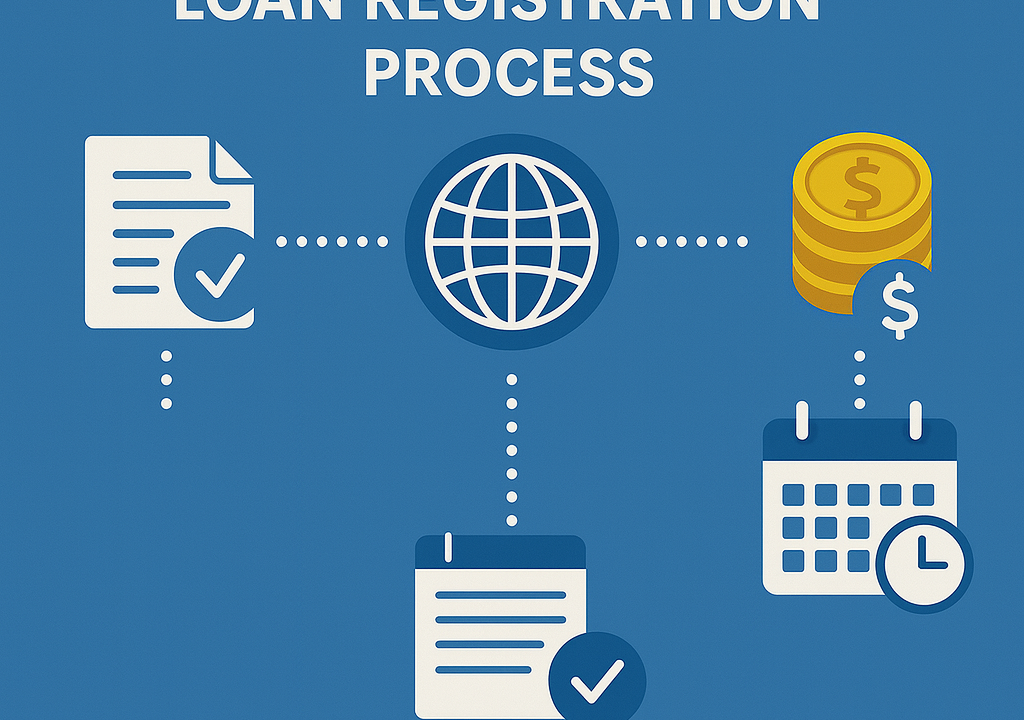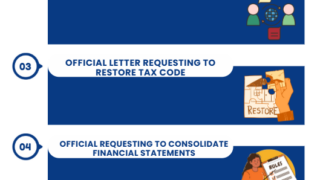Short-term foreign borrowing is a common solution for Vietnamese enterprises to supplement working capital without undergoing complex registration procedures with the State Bank of Vietnam (SBV). However, not all short-term loans are “exempt from registration”. This article explains what qualifies as a short-term foreign loan, the implementation process, and when enterprises must report or convert the loan into a medium- or long-term loan in compliance with legal regulations.
1. What Are Short-Term Foreign Loans? Who Is Allowed to Borrow?
Definition of Short-Term Loans Under the Latest Regulations
A short-term foreign loan is a loan obtained from an overseas organization or individual with a term of less than 12 months, calculated from the first disbursement date to the final repayment date. These loans are commonly used to supplement working capital, pay for goods, raw materials, and short-term operating expenses.
Under Circular 12/2022/TT-NHNN, short-term loans fall under the category of unsecured foreign loans (without government guarantee) and do not require registration with the State Bank of Vietnam (SBV), unless certain conditions arise, such as an extension that increases the actual loan term.
Entities Allowed to Obtain Short-Term Foreign Loans
Not all enterprises in Vietnam are allowed to borrow from abroad. Only the following entities are eligible:
- Legally registered enterprises with legal person status in Vietnam.
- FDI enterprises permitted to borrow from foreign parent companies or overseas shareholders.
- Credit institutions and non-bank financial institutions licensed by the SBV.
The foreign lender must also be a legally recognized overseas organization/individual with clear financial capacity. Loan contracts must be bilingual, transparent, and validly executed.
Difference Between Short-Term and Long-Term Foreign Loans
The key distinction lies in loan tenure:
- Short-term loans: Under 12 months → No registration required
- Long-term loans: From 12 months or more → Registration required with the SBV
However, if a short-term loan extends beyond 12 months, either due to late repayment or a signed extension, the borrower must register it as a long-term loan within 30 days. Failure to do so may result in fines of VND 40–60 million.
Legal Framework Governing Short-Term Foreign Loans
Short-term foreign loans are governed by:
- Circular 12/2022/TT-NHNN – Guidelines on foreign borrowing and repayment;
- Decree 219/2013/NĐ-CP – Foreign loans without government guarantee;
- Internal guidelines from the SBV and DPI authorities for FDI enterprises.
Borrowers must open a designated foreign loan account, ensure all disbursements and repayments go through this account, and keep all loan documents for at least 5 years for inspections and audits.
Pros and Cons of Short-Term Foreign Loans
Advantages:
- No SBV registration required → simpler process
- Fast disbursement and flexible implementation
- Suitable for short-term capital needs (imports, operations)
- Lower interest rates in many cases, especially for intra-group loans
Disadvantages:
- Legal risk if repayment exceeds 12 months without re-registering as a long-term loan
- Not suitable for long-term investment or fixed asset purchases
- Subject to scrutiny if used for improper purposes or if debt levels exceed safe limits
2. What Is the Procedure for Obtaining a Short-Term Foreign Loan?
To ensure a short-term foreign loan is carried out legally and transparently, enterprises must strictly follow the procedures issued by the State Bank of Vietnam (SBV). Below is the standard 5-step process:

Step 1: Negotiate and Sign the Foreign Loan Agreement
The borrower and the foreign lender (parent company, financial institution, or foreign individual) must agree on key terms such as loan amount, tenure (under 12 months), interest rate, disbursement method, repayment schedule, and currency.
The loan agreement must be bilingual (Vietnamese–English or Vietnamese–another language) and legally executed.
Important notes:
- The loan term must not exceed 12 months from the first disbursement date.
- If the parties expect an extension later, they should consider structuring it as a long-term loan and registering it with the SBV from the outset.
Step 2: Open a Dedicated Foreign Loan Account
Before receiving funds, the enterprise must open a foreign loan account at a commercial bank licensed for foreign exchange operations.
This account is used exclusively to:
- Receive loan proceeds from abroad;
- Make repayments of principal, interest, and fees;
- Manage all cash flows related to the short-term loan.
Using the correct loan account is a mandatory requirement for the loan to be considered legally valid under Vietnam’s foreign exchange regulations.
Step 3: Disburse the Loan in Compliance with Regulations
Once the account is opened, the lender transfers the funds according to the agreement. The receiving bank in Vietnam will verify the transaction details against the contract.
Key reminders:
- Disbursement is allowed only after the contract is valid and the correct loan account is opened;
- Enterprises must not receive foreign loan funds through ordinary bank accounts;
- The loan must be used exactly as stated in the agreement — if misuse is detected, the bank may reject the transaction.
Step 4: Repay Principal, Interest, and Related Fees
The enterprise must plan to repay on time. All repayments (principal, interest, fees) must:
- Be made through the designated loan account;
- Be supported by adequate documentation (loan agreement, bank statements, detailed invoices).
Timely repayment prevents the loan from being automatically treated as a long-term loan, which would require registration and could trigger administrative penalties.
Step 5: Maintain Complete Records for Foreign Exchange Inspection
Although short-term loans do not require SBV registration, enterprises must still keep full documentation, including:
- Loan agreement;
- Confirmation of the foreign loan account;
- Bank statements, disbursement and repayment documents;
- Remittance advices and related transaction records.
Documents must be retained for at least 5 years in accordance with the Accounting Law and SBV regulations.
3. Do Short-Term Foreign Loans Require Registration?
Cases Where Registration Is Not Required
According to Circular 12/2022/TT-NHNN, short-term foreign loans (with a tenure of under 12 months) are not required to be registered with the State Bank of Vietnam (SBV) if all the following conditions are met:
- The actual loan term is under 12 months;
- Principal and interest are repaid on time as stated in the loan agreement;
- There is no agreement to extend the loan beyond 12 months;
- The loan is not converted into capital contribution or any other form of investment.
This exemption helps businesses save time and accelerate disbursement when facing urgent cash flow needs.
When Registration Becomes Mandatory
Even if the loan is initially classified as short-term, the enterprise must register it with SBV if any of the following situations occur:
- The loan is extended and the total term exceeds 12 months;
- The borrower fails to repay on time, making the actual term exceed 12 months;
- Changes to the loan agreement alter the nature of the loan.
By law, the enterprise must complete registration within 30 days from the date the loan becomes a long-term loan. Failure to register on time may result in penalties ranging from VND 40 million to 60 million.
SBV Online Registration System
Foreign loan registration is carried out through the SBV’s online system:
Registration steps include:
- Create an enterprise account;
- Prepare electronic documents in the required format;
- Submit the application online (and hard copy if requested);
- Track processing status and receive SBV feedback;
- Obtain the official loan code for disbursement and reporting.
Enterprises must also submit monthly reports if the loan becomes long-term or if outstanding balances exceed reporting thresholds.
Handling Loans That Become Long-Term
If a short-term foreign loan unintentionally exceeds 12 months due to late repayment, the enterprise has two options:
- Register the loan as a long-term foreign loan with SBV;
- Repay the loan early to close it on time and avoid penalties.
Failure to register may lead to:
- Administrative fines of up to VND 60 million;
- Banks refusing to process repayments;
- Difficulties in justifying loan interest as deductible expenses for tax purposes.
Penalties for Late or Missing Registration
Under Decree 88/2019/NĐ-CP, violations regarding foreign loan registration are subject to the following penalties:
- Failure to register a long-term loan: VND 40–60 million;
- Late or inaccurate reporting: VND 10–20 million;
- Serious violations: SBV may suspend disbursement or claw back the loan.
4. What Should Enterprises Keep in Mind When Taking Short-Term Foreign Loans?
Although short-term foreign loans are not required to be registered like long-term loans, they still carry legal risks if the borrower does not comply with foreign exchange regulations. Below are the key points enterprises must note:

Debt limits and risk-control requirements
- Enterprises should monitor their total short-term foreign borrowing to avoid exceeding the special reporting threshold (e.g., USD 10 million).
- If outstanding loans are high or show signs of risk, the State Bank of Vietnam (SBV) may request additional reports or enhanced supervision.
- ⚠ For FDI enterprises: using short-term loans to cover capital shortfalls in investment projects may force the company to amend its Investment Registration Certificate and register the loan as a long-term foreign loan.
Periodic reporting requirements
Even though short-term loans do not require registration, enterprises must still report to SBV in the following cases:
- Any change in loan terms;
- When outstanding balances exceed reporting thresholds;
- When required by foreign exchange authorities.
Monthly reports must be submitted before the 5th, including:
- Disbursements and repayments of principal and interest;
- Ending loan balance;
- Any contract addendum or change in the purpose of loan use.
Common mistakes and how to avoid them
Common errors include:
- Using the wrong account (receiving funds through a payment account instead of a dedicated loan account);
- Late repayment causing the loan term to exceed 12 months without re-registration;
- Missing supporting documents (disbursement records, reconciliation statements, invoices);
- Declaring the wrong loan purpose → leading to compliance issues during inspections.
How to avoid mistakes:
- Draft contract terms carefully and ensure the loan tenure is accurate;
- Open and use the proper loan account;
- Keep complete supporting documents for each disbursement and repayment.
Notes on using short-term loan funds
Short-term foreign loans should only be used for lawful short-term purposes such as:
- Importing goods and raw materials;
- Paying short-term operating expenses;
- Temporary cash-flow support (not long-term investment).
Using the loan for the wrong purpose may result in penalties, and loan interest may be denied as a deductible expense for corporate income tax.
The role of accounting in managing foreign loans
The accounting department plays a critical role in:
- Monitoring loan limits and repayment deadlines;
- Recording loan transactions accurately in financial statements;
- Coordinating with banks to verify documents;
- Preparing and submitting reports to SBV on time;
- Maintaining proper loan documentation for inspections.
A single mistake in accounting may cause a short-term loan to unintentionally become long-term or lead to reporting violations.
Short-term foreign borrowing is an effective tool for temporary liquidity needs. Although registration is not required, enterprises must still comply with key steps such as opening a dedicated loan account, drafting compliant contracts, and closely tracking loan maturity. Professional consultation is recommended to ensure the borrowing process is fast, compliant, and risk-free.
For any inquiries, contact Wacontre Accounting Services via Hotline: (028) 3820 1213 or email info@wacontre.com for prompt assistance. With a team of experienced professionals, Wacontre is committed to providing dedicated and efficient service. (For Japanese clients, please contact Hotline: (050) 5534 5505).





